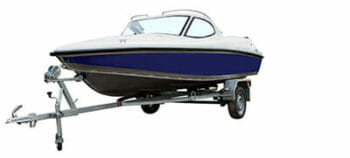Looking for vehicle storage, but not sure what size is best for your vehicle? Whether you’re storing a compact car or a large RV, our guide is here to help. We’ll walk you through the different unit sizes available while also considering factors like vehicle dimensions and storage requirements.
With this vehicle storage size guide, you’ll be equipped with all the information you need to choose the most suitable and cost-effective option for you.
Why Use a Vehicle Storage Unit?
Beyond simply getting additional space, there are a multitude of reasons to consider using a vehicle storage unit:
Reclaiming Garage Space
- Seasonal Vehicle Storage: Store summer vehicles (convertible, motorcycles, ATVs, ) during winter, and vice versa, freeing up garage space for other uses.
- Limited Garage Size: If your garage is too small to adequately store both your vehicle(s)s and your household items, a storage unit provides additional space.
- Creating Multi-Purpose Areas: Transform your garage into a workshop, home office, gaming room.
- Building a New Residential Space: Depending on your property, if your garage is large enough, you can even consider transforming it into a full-blown guest suite or rental apartment. Ultimately, this new revenue source would more than offset against the cost of vehicle storage.
Urban Living and Parking Constraints
- Apartment/Condo Parking Scarcity: Many modern apartment and condo buildings lack dedicated parking. A storage unit provides you with a secure off-site solution.
- Limited Street Parking: In dense urban areas, street parking can be unreliable or non-existent. Storage units offers you a guaranteed parking space.
Additional Reasons
Vehicle Protection:
- Weather Protection: Shield your vehicle from harsh weather conditions like heavy rain, snow, ice, and extreme temperatures. Heated storage units offer extra protection in cold climates.
- Theft and Vandalism Deterrence: Choose a storage facility that has security features like 24-hour surveillance and gated access, which can act as preventative measures to discourage theft or damage to your vehicle.
Long-Term Storage:
- Extended Travel: Keep your vehicle safe while you’re away for long periods.
- Renovations or Construction: Protect your vehicle from dirt, debris, and potential damage during home renovations.
What Type of Unit Do You Need for Vehicle Storage?
Not sure what unit size will fit? Take a closer look at our unit dimensions and find the perfect storage for your vehicle!
Our Recommendation: 10 ft x 15 ft
Recreational Vehicle Storage Unit
This is big enough to store more than one smaller sized recreational vehicle at the same time, such as motorcycles. There’s also enough space for related accessories and gear, such as tools. (Smaller units will be suitable if you only have one recreational vehicle to store).

You Want to Store:
Coupe, hatchback, small Jeep or sportscar, a crossover vehicle, an economy-sized family car.
Our Recommendation: 10 ft x 20 ft
Small Vehicle Storage Unit
This size is equivalent to the area of a typical parking space. It will provide enough room for most small vehicles from economy to mid-sized passenger vehicles and a few more odds and ends, like automotive parts and accessories, tools, or seasonal tires.
Our Recommendation: 10 ft x 25 ft or 10 ft x 30 ft
Large Vehicle Storage Unit
Our largest storage units will give you enough room for heavy-duty, commercial, and larger vehicle types, with additional space to store garage extras like tool sets, boxes, tires, extra equipment, or additional items that you need to transport regularly.
Our Recommendation: Various (depending on size of vehicle or seacraft)
RV & Boat Storage Unit
Selected units can be an indoor or outdoor type for storing an RV or a small boat, depending on their dimensions. If you choose a bigger unit, you can have more room to store extra equipment and accessories, spare parts, tires, or seasonal gear.
How Do I Prepare My Vehicle for Storage?
Properly preparing your car for storage is crucial to ensure it remains in good condition to hit the road whenever you’re ready. Consider the following steps before, during and after you store your vehicle, so you can maintain its condition while stored and not in use:
Before Storage
1. Clean and Detail:
- Thoroughly wash and / or wax the exterior to remove dirt, debris, and protect the paint.
- Clean the interior, removing litter, food crumbs, and any items that could attract pests or mold.
- Vacuum carpets and upholstery.
2. Fluid Maintenance:
- Top off all fluids, including engine oil, coolant, brake fluid, and windshield washer fluid.
- Change the oil and filter if it’s due or close to the recommended interval.
- Fill the gas tank and add a fuel stabilizer to prevent fuel degradation during storage.
3. Battery Care:
- Disconnect the battery to prevent parasitic drain.
- Alternatively, connect a battery tender or trickle charger to maintain battery health.
4. Tire Protection:
- Inflate tires to the manufacturer’s recommended pressure to prevent flat spots.
- Consider using tire cradles or placing the car on jack stands to take the weight off the tires (especially for long-term storage).
5. Pest Prevention:
- Seal any potential entry points (e.g., exhaust pipe) with steel wool or mesh.
6. Cover and Protection:
- Use a breathable car cover to protect from dust, dirt, and scratches.
- If storing outdoors, ensure the cover is waterproof and UV-resistant.
- Consider placing moisture absorbers or desiccants inside the car to prevent condensation.
During Storage
Regular Checks: If possible, visit your stored car periodically (e.g., monthly) to:
- Start the engine and let it run for 15-20 minutes to circulate fluids and charge the battery.
- Check tire pressure and adjust if necessary.
- Inspect for any signs of pests or damage.
After Storage
- Before driving, reconnect the battery (if disconnected).
- Check all fluid levels and top off if needed.
- Inspect tires for flat spots or damage.
- Give the car a thorough wash to remove any accumulated dust.
- Take it for a short drive to ensure everything is functioning properly.
By following these steps for a proactive approach to storage, you can safeguard your vehicle’s condition and minimize the risk of any issues with your vehicle once it’s time to retrieve it.
Vehicle Storage FAQs
How much does vehicle storage cost?
The cost of vehicle storage will depend on the type of storage you choose, its size, and its location. For example, an outdoor parking space is more affordable than a covered garage-style unit. Typically, storage units located at a facility outside the urban core will be less expensive than similar units downtown. For vehicle storage, costs start around $50 per month, and increase in price according to the variables mentioned above.
Do I need to insure my vehicle while it’s in storage?
Yes, all vehicles that are stored in outdoor parking spaces must have proof of insurance through your vehicle insurance provider.
Can I reserve a vehicle storage unit?
Absolutely! You can reserve a storage unit at a location near you up to 30 days before your move-in date. Reservations can be easily made online, toll-free via telephone, or in person at the rental office on-site. We will make sure that your preferred space is available at the location of your choice with your quoted rate and promotion locked in. To learn more, visit our Reservations and Renting a Storage Unit page for further information.
When can I bring my vehicle into storage?
You can start storing your vehicle on the same day that you rent your storage space. You must ensure that your vehicle is insured, and that you have proof of ownership. We also recommend that you properly prepare or winterize your vehicle for self-storage beforehand.
How often should a vehicle in storage be driven?
To keep all components in working order, your vehicle should be driven at least twice a month. Even for short-term seasonal storage, it’s a good idea to run the engine every two weeks or so for several minutes, allowing it to warm up its normal temperature, which is between 75 – 105⁰ C, depending on the make of your car.
Can I still access my vehicle while it’s in storage?
Yes, you will have unlimited entry 365 days a year during regular gate hours to access your vehicle. We’ll provide you with an individual PIN code for secure access to the storage facility.



